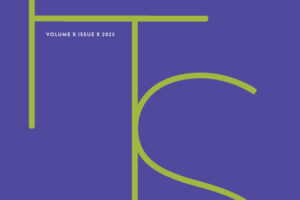Translating with the Earth: Gender, Feminism and Eco-Translation

Special Issue of Feminist Translation Studies
Abstract deadline
15 May 2024
Manuscript deadline
15 October 2024
Special Issue Editor(s)
Şebnem Susam-Saraeva, University of Edinburgh, Scotland, UK
S.Susam-Saraeva@ed.ac.uk
Carolyn Shread, Mount Holyoke College, US
cshread@mtholyoke.edu
Intersections between gender, feminism and environmental issues have been explored in Western scholarship for more than fifty years now, catalyzed by Rachel Carson’s Silent Spring (1962) and first named in French in Françoise d’Eaubonne’s neologism écoféminisme in Le Féminisme ou la mort (1974). Scholars have offered thought-provoking and thorough analyses of the intersectional connections between patriarchy, capitalism, racism, colonialism, imperialism, speciesism, and the environment (e.g. Gaard 2011). The last decade has seen a particular increase in the complexity of these discussions (e.g. Braidotti 2013 and 2021), in which matter and zoe have emerged as key components connecting all vegetal, animal and human-animal life and their theorization.
Given this background, and the extensive contribution of gender-conscious and feminist approaches to translation studies over the past three decades, the dearth of research in translation studies on the intersections of gender, feminism and the Earth is conspicuous. Feminist translation thinking has focused primarily on minoritized human groups, such as women, and queer and trans communities to the exclusion of all other life forms and ecosystems, which are also oppressed and ravaged by the same systems of power, e.g. colonialism and capitalism. Taking a broader perspective and acknowledging these injustices can strengthen feminist arguments and enhance their theoretical and practical applications. To rephrase the famous quote: none of us can be free, until all Earth is free.
In the ‘blinding light’ of the Anthropocene, this inaugural special issue of the journal Feminist Translation Studies summons scholars who work at the intersections of gender, feminism and eco-translation to bring their tools and perspectives to respond to the critical imperative that we learn to translate with the Earth. We have chosen this title carefully, as we do not look to a ‘heroic saviour’ position of ‘translating for the Earth’. Rather, the invitation is as much about listening – to the ice, rocks, plants, animals, rivers – as about translating their stories.
This inaugural issue thus seeks to decenter the trope of anthropos from translation goals and processes with an ear to new forms of feminist and epistemic justice. We are pragmatically oriented by the urgency to respond to climate crisis, calling for new modes of translation with the many forms of life conventionally silenced through the patriarchal presumptions of humans to rule and speak for the Earth. Our vision is a transcontinental conversation engaging indigenous epistemologies and eliciting the future via semiotic creativity, reimagining technology beyond anthropocentric, colonizing, extractivist and exclusionary modes of translation. To do so will be to abandon linguistic biases in favor of worldviews that are attentive to biosemiosis and posthumanism. We invite papers that bring substance and life to this vision, initiating trans-Earth comprehension.
Submissions on all related topics are welcome, with articles on the following themes particularly encouraged:
- What are the life forms and ecosystems also oppressed by the same systems of power that have not yet received critical attention in feminist translation studies; and why is it crucial that feminist translation studies offer a critical space for discussing them?
- How do the gendered care economies, and changes in relation to them, impact current translation practices, and what are the environmental costs of such changes?
- How can a focus on interspecies translation forge consensus for new epistemes and the well-being of the Earth beyond an anthropo-centric focus?
- How will meaning translate with matter in an expansion of feminist practices?
- How do somatic resonances of translating with the Earth manifest beyond gendered binaries?
- What skies, liquidities, and grounds do all life forms need and how can feminist thinking contribute sustainable paradigms for a thriving Earth?
- How do our material entanglements with the more-than-human world express the requirements for survival of all life and matter?
- How are feminist methodologies uniquely equipped to access and imagine these ecologically oriented reformulations of translation?
- What forms of feminist multimodal and intersemiotic translation are emerging in the face of climate crisis?
Home address:
Translating with the Earth: Gender, Feminism and Eco-Translation